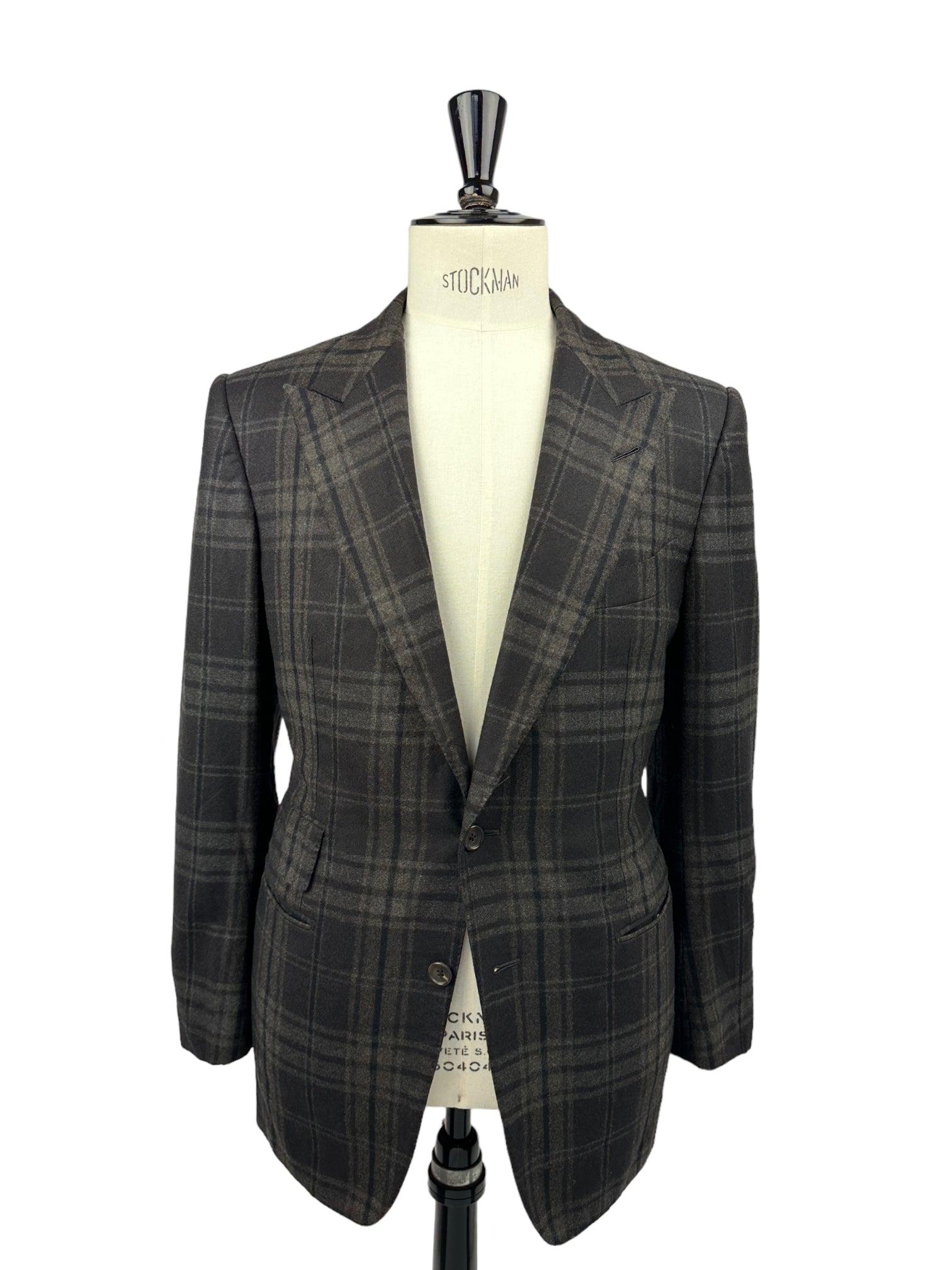
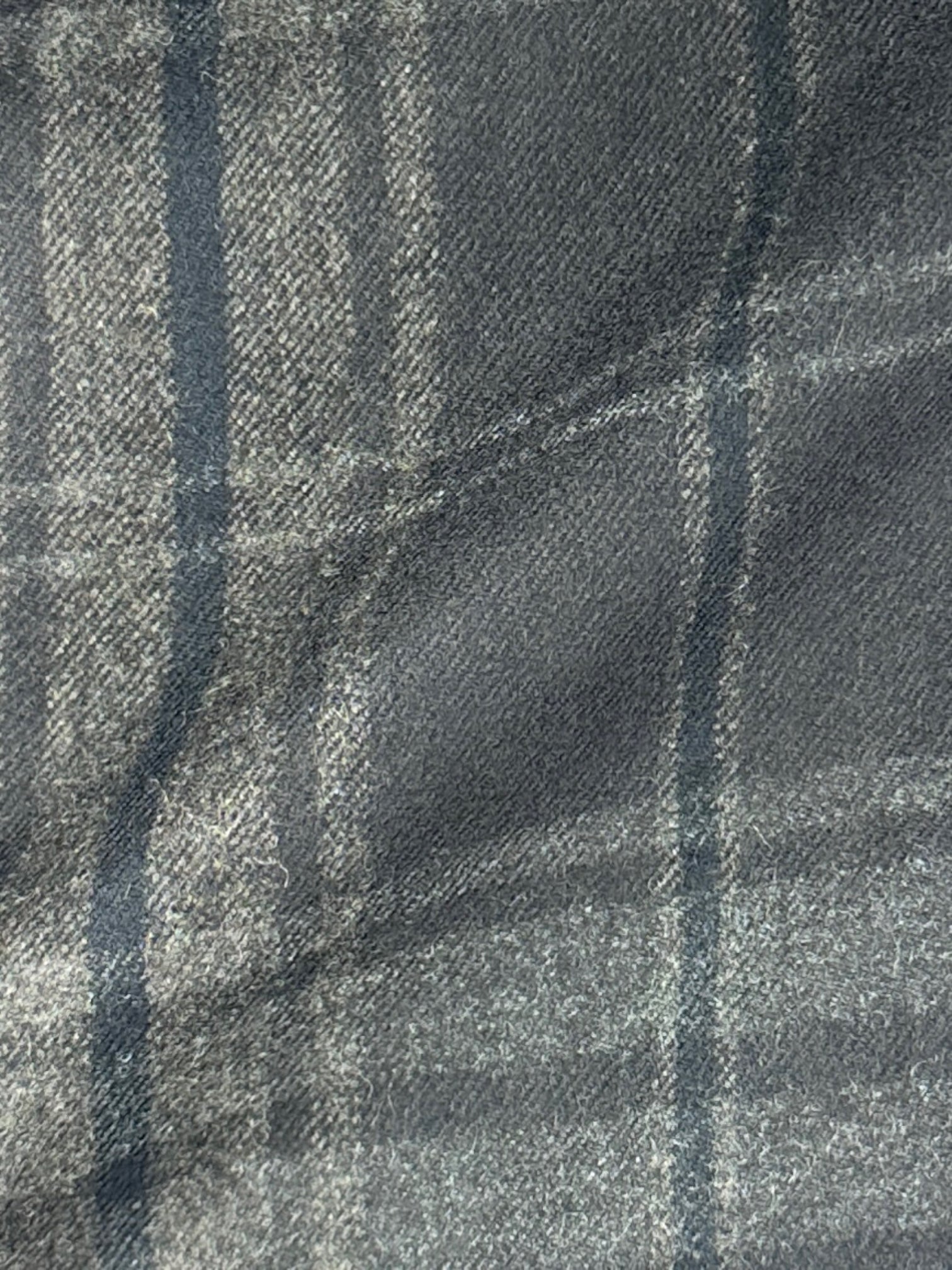
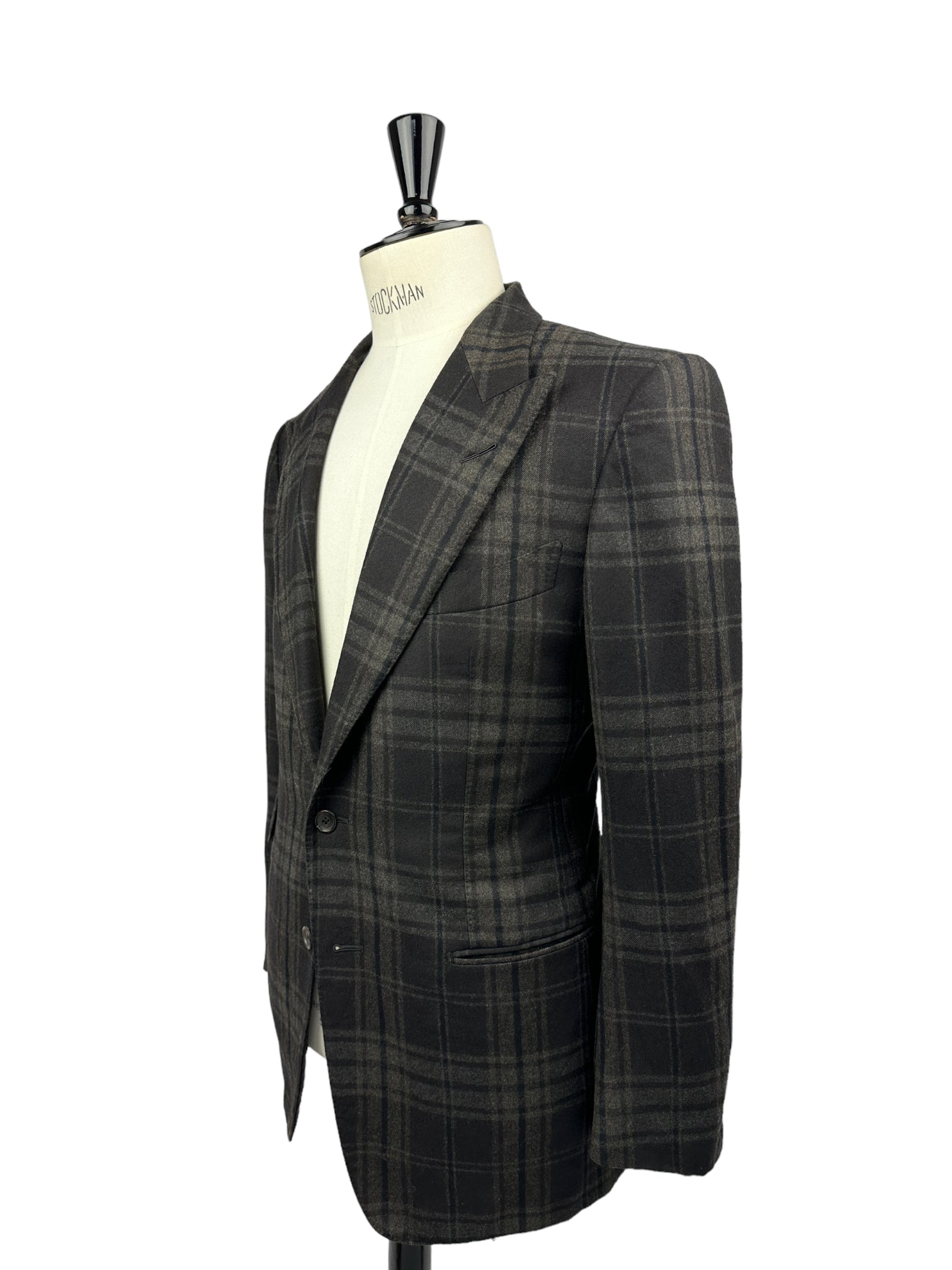
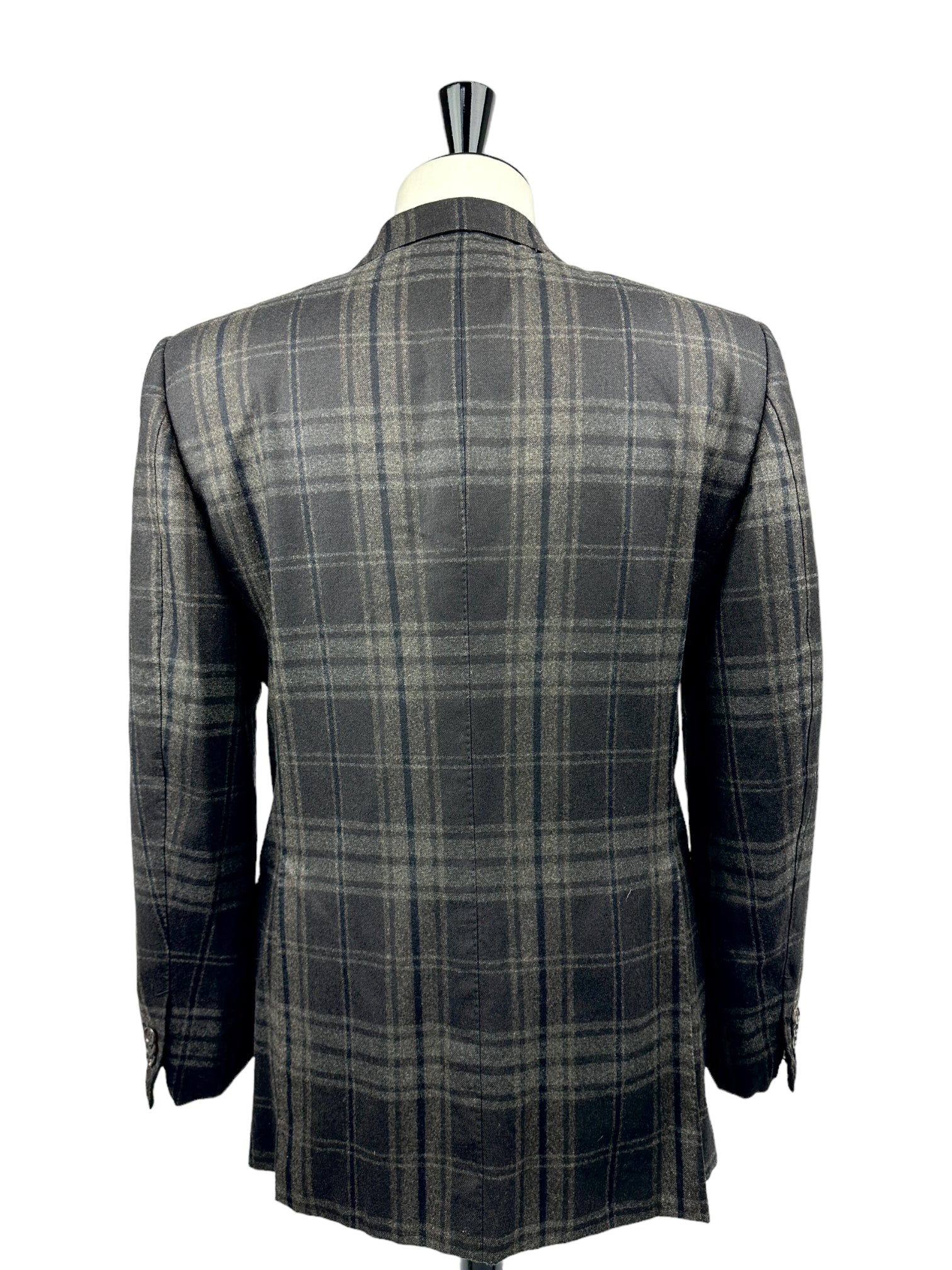
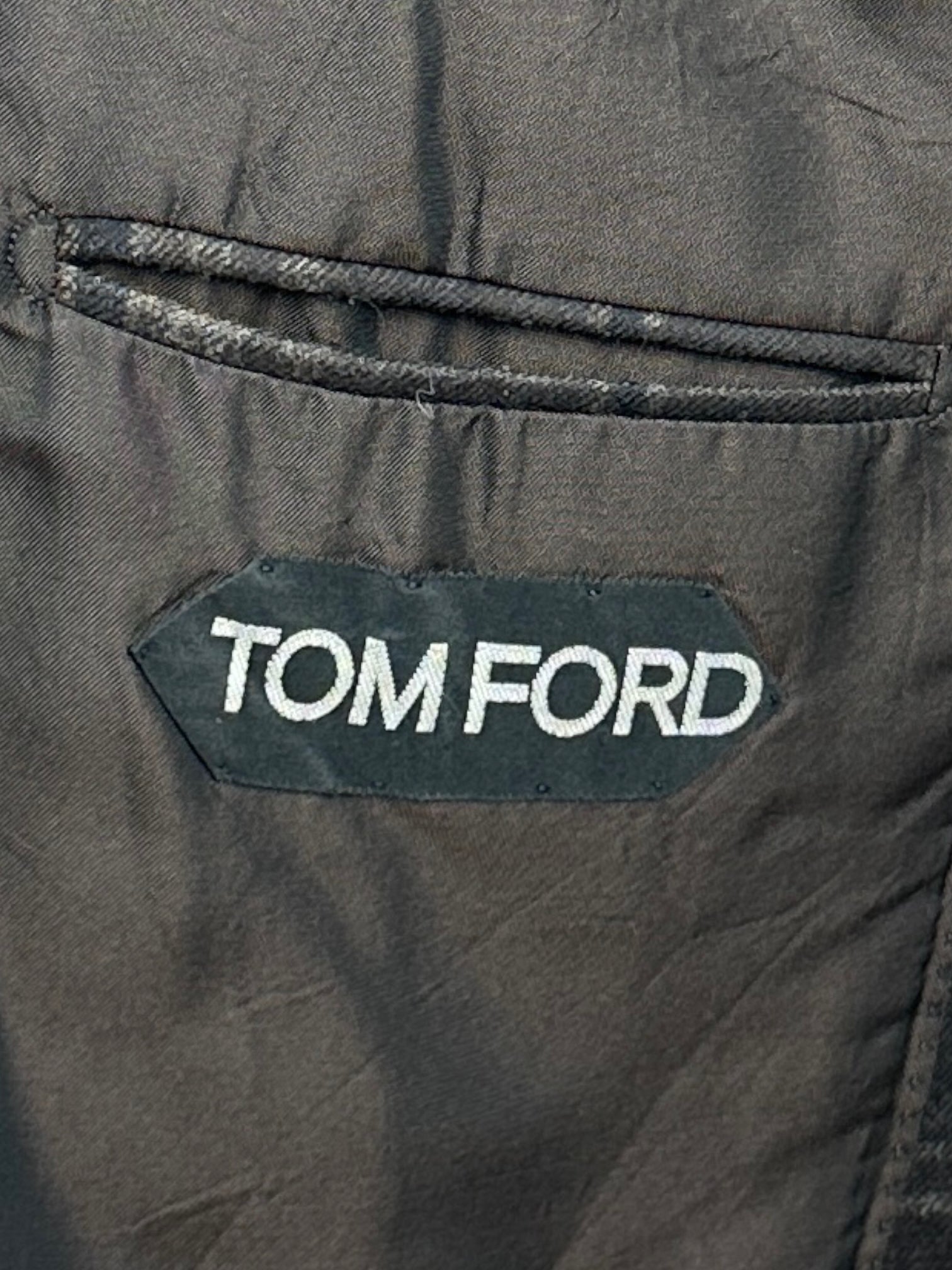
Tom Ford Brown Check Jacket
52 IT / 42 US / Large
With Tom Ford’s tailoring you’ll possess the charisma of James Bond. This contemporary look, cut from a luxury wool and cashmere blend, contains sharp padded - roped - shoulders, broad peak lapels, slightly suspended around the waist and functioning horn buttonholes at the end of the sleeve. Discover the elaborated sartorial details below.
Most of Tom Ford’s garments are manufactured in Italy and Switzerland. A Tom Ford suit takes eight weeks to craft – and the process begins with the choice of fabric. Tom Ford’s wool fabrics are spun in England on 18th-century machines while its wool-silk and wool-cashmere blends are made in northern Italy. A tailor or seamstress devotes nineteen hours of exceptional care to ensure the longevity of the - tailored - garment.
Composition: 99% Wool / 1% Cashmere
Color: Brown
Pattern: Glen plaid
See how we measure our sartorial items
Discover the customization possibilities by visiting our tailor alteration guide
Shipping
- Complimentary shipping on orders over €200 (Netherlands), €500 (EU), and €1,000 (rest of world).
- Orders under these amounts: shipping rates depend on your country.
- Customs duties or import fees may apply and are the customer’s responsibility. The courier may charge additional fees.
Returns
- You have the right to return your order within 14 days of delivery.
- If you wish to return an item, please notify us within 48 hours of receiving your order.
- Return shipping is at the customer’s expense.
- A 10% restocking fee will be deducted from your refund for all returns.
Please carefully review all measurements and quality control notes in the listing before purchasing. Return shipments have an environmental and economic impact. For any questions or if you need help, feel free to contact us before placing your order.
General Note: While we inspect each item to ensure its quality, please note that minor imperfections may be present due to the preloved nature of the garments. We strive to represent every item accurately, but subtle signs of wear may sometimes go unnoticed. We appreciate your understanding and commitment to sustainable luxury.
Choose options





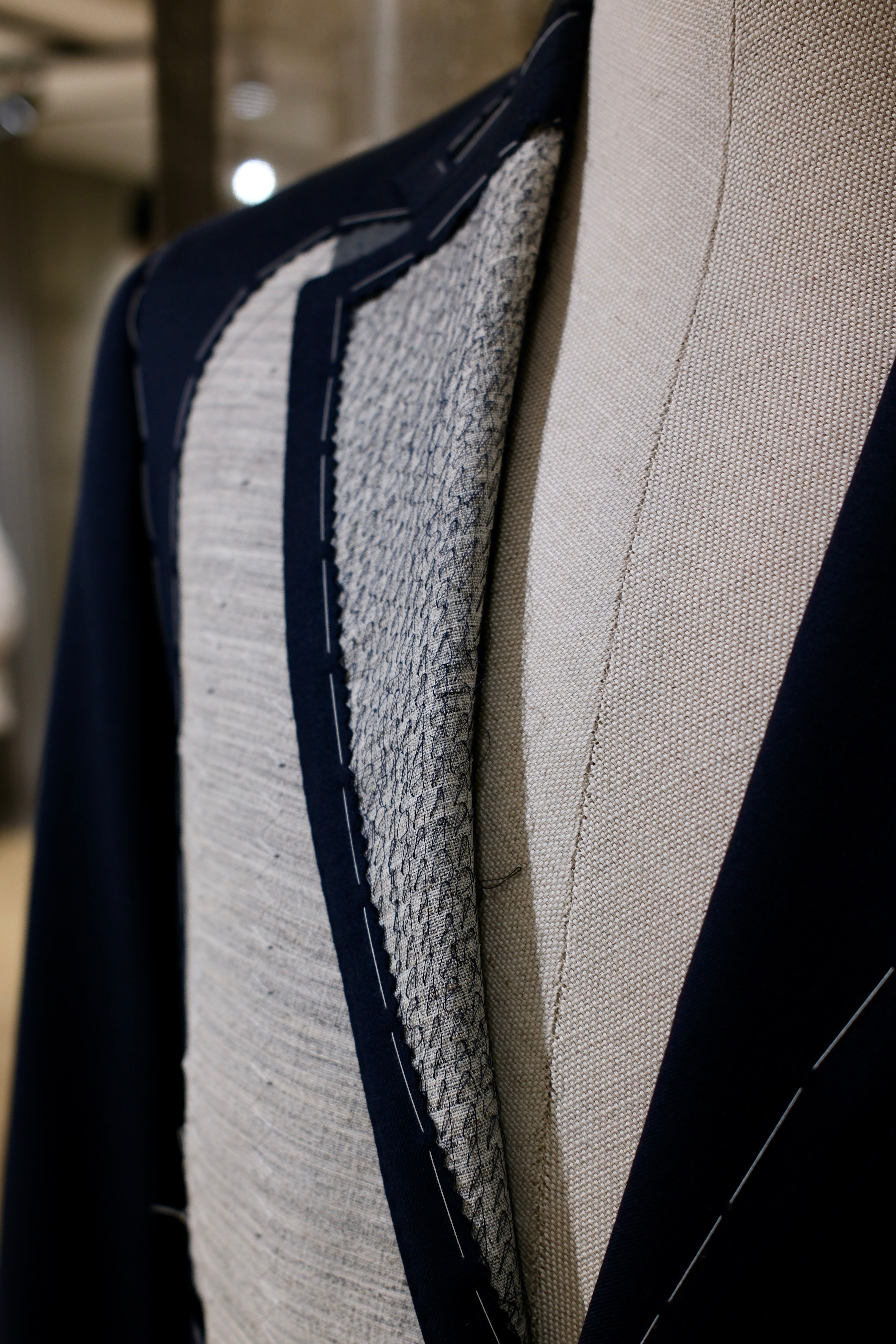
Discover the
Sartorial Details

Full Canvas Construction
A sartorial jacket - or coat - needs an interlining that will help give it shape and mold it. Canvas gives the item a tailored and crafted look. In short, it breathes life into it. Purely technical, canvas is made from either horsehair, wool, mohair or camel hair. It could also be a mix of them all, with varying thickness and weight. The canvas is stitched to the jacket, often by hand, thus making the canvas pieces 'floating' in the middle of the inner and outer cloth. This gives the jacket added flexibility. The canvas runs from the upper parts, all the way down to the end of the jacket. After you wear your canvassed suit for a while, it will begin to take your shape and look incredibly natural.
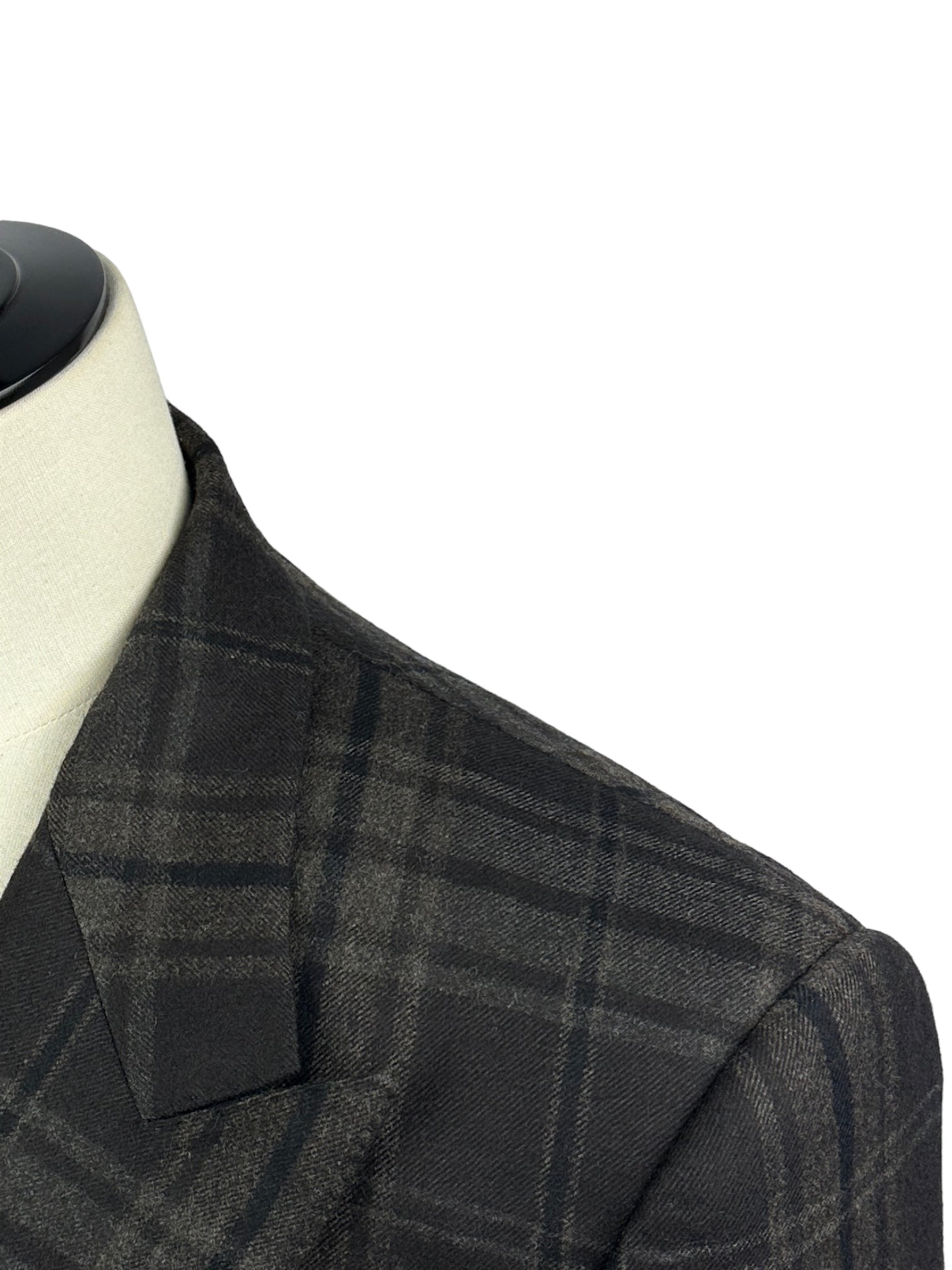
Roped Shoulders
A roped shoulder - or sleeve - head describes the bumped shape or ridge of the sleeve’s attachment to the shoulder. The higher it is, the more imposing the shoulder line appears. This can often be found in iconic British tailoring.
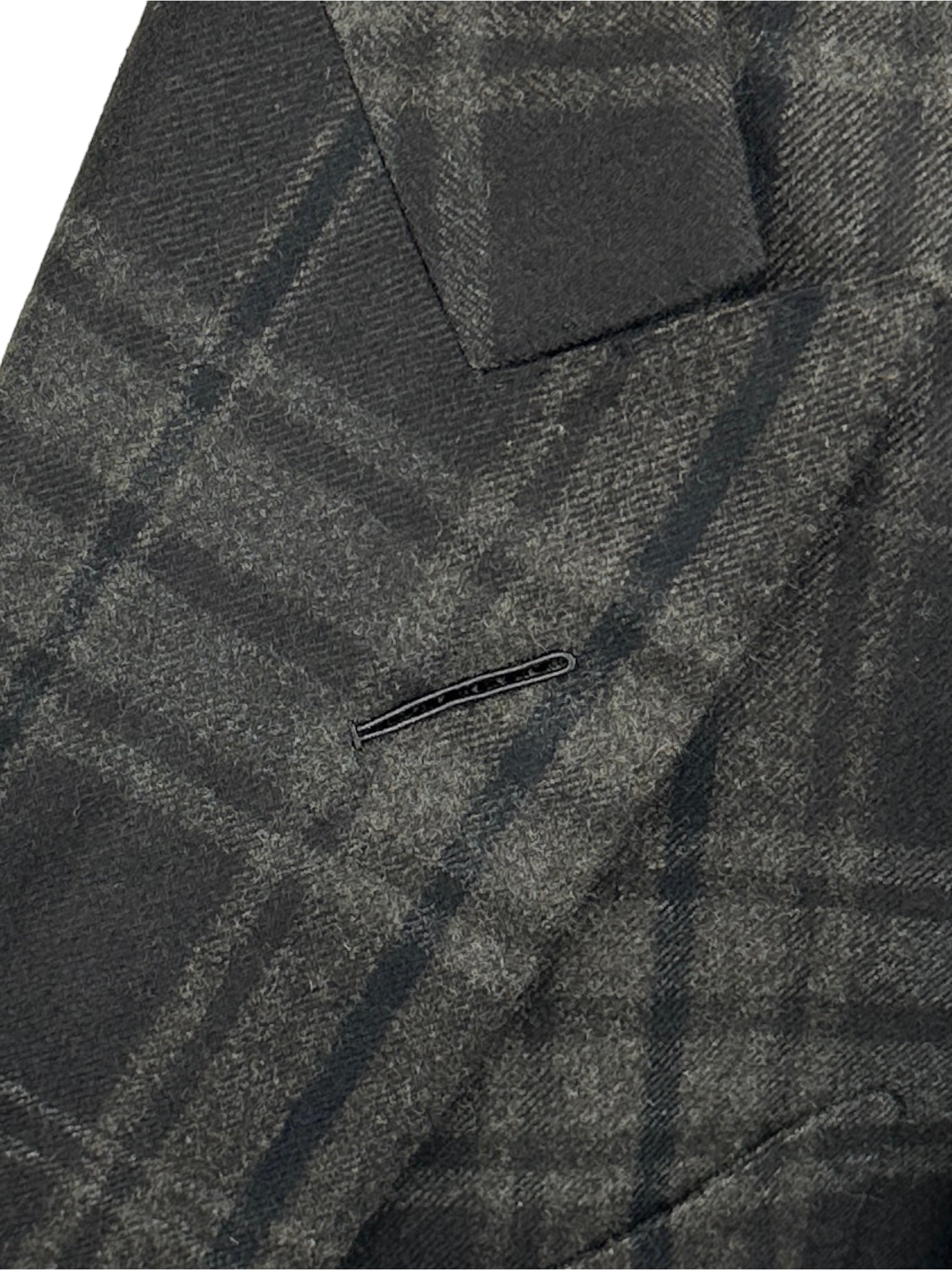
Long Milanese Buttonhole
The elegant, longer brother of the Milanese. With its thin and extra long gimp cord inside, this is one of the most challenging buttonholes to make by hand. Even a highly skilled tailor will take about 20 minutes to finish it.
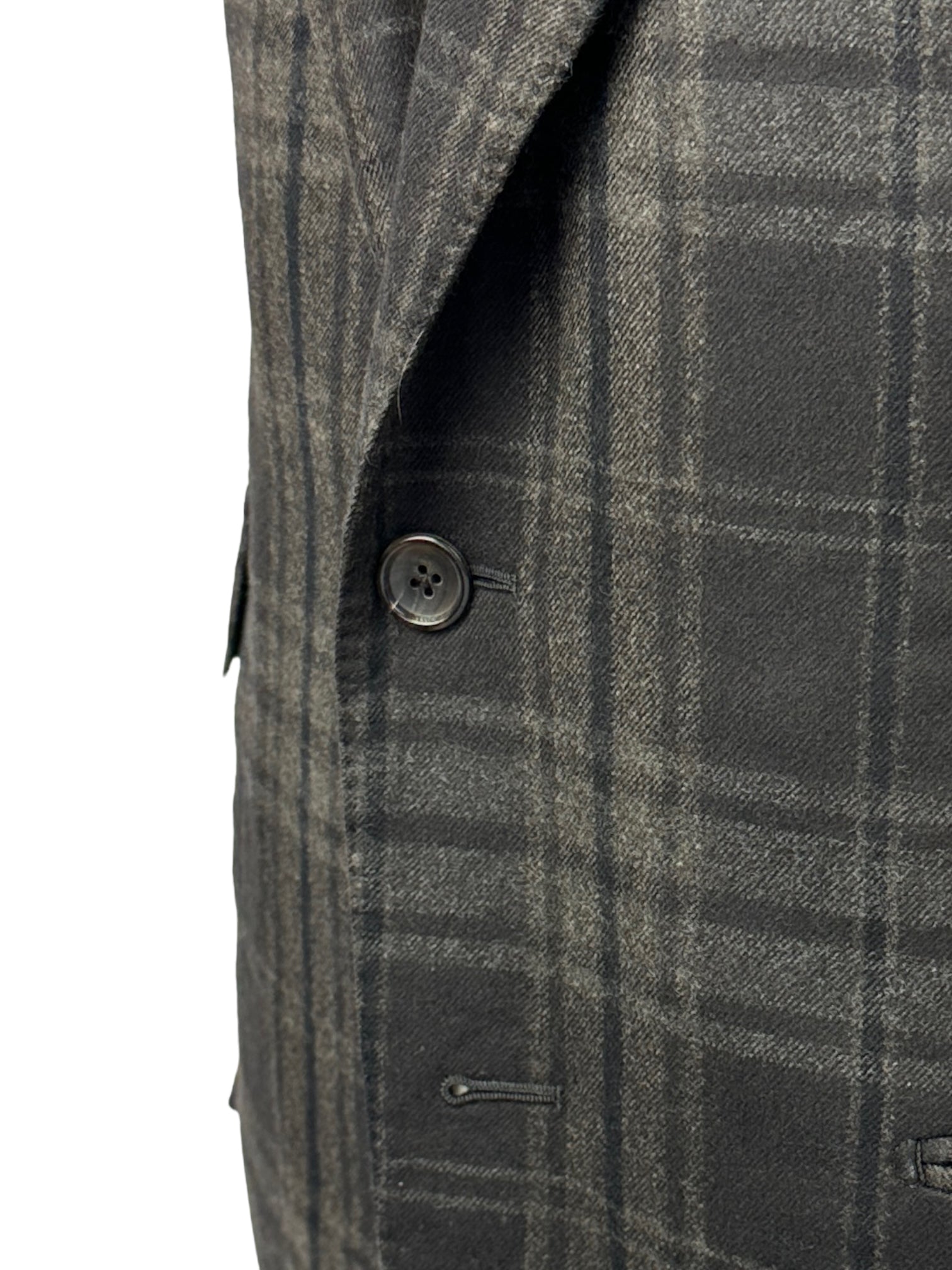
Two-Button Closure
The jacket has a two-button closure which keeps the profile neat.
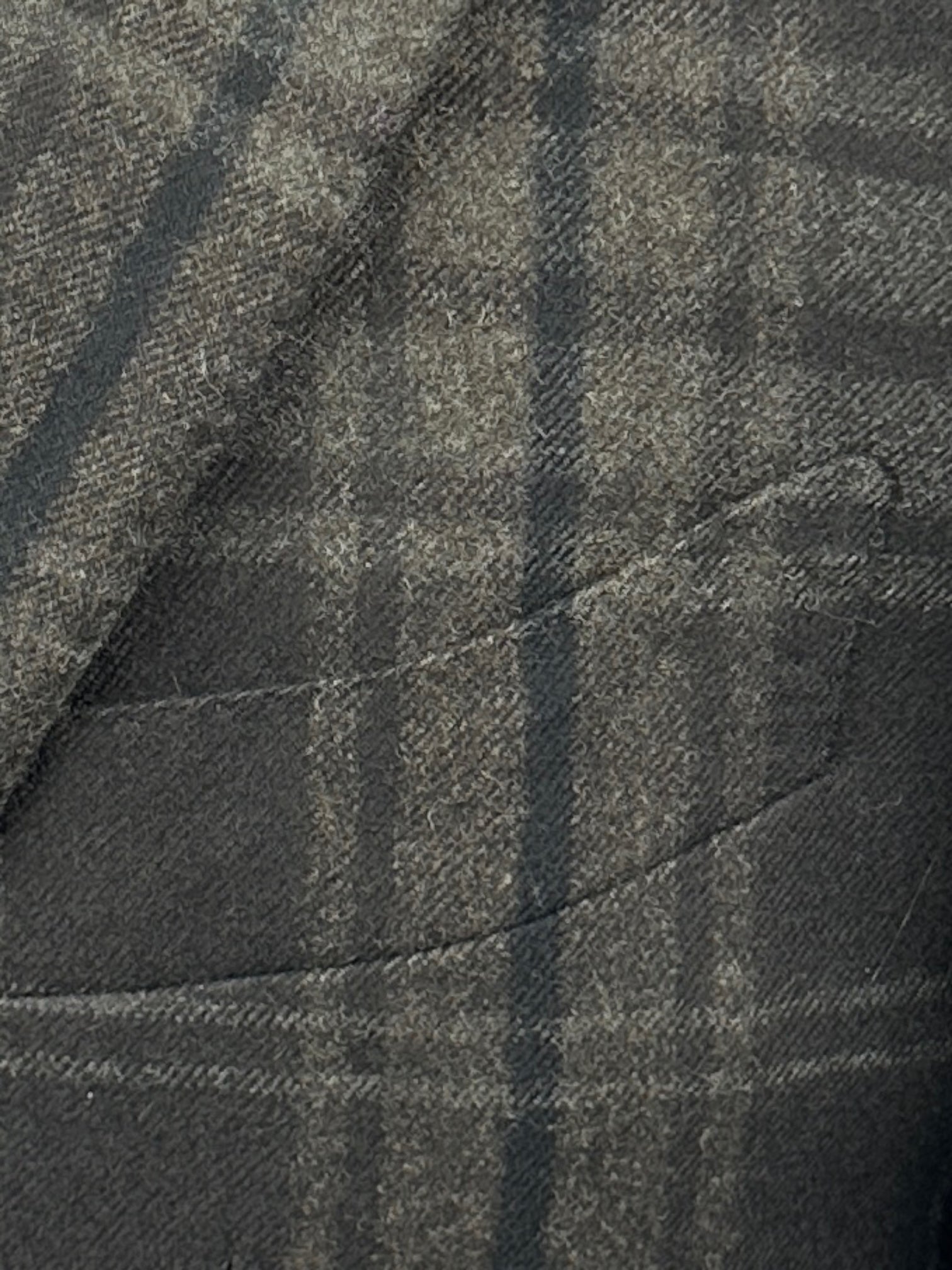
Barchetta Chest Pocket
The barchetta chest pocket is not only curved and blunted, as in the southern Italian style, but the corner is rounder right off.
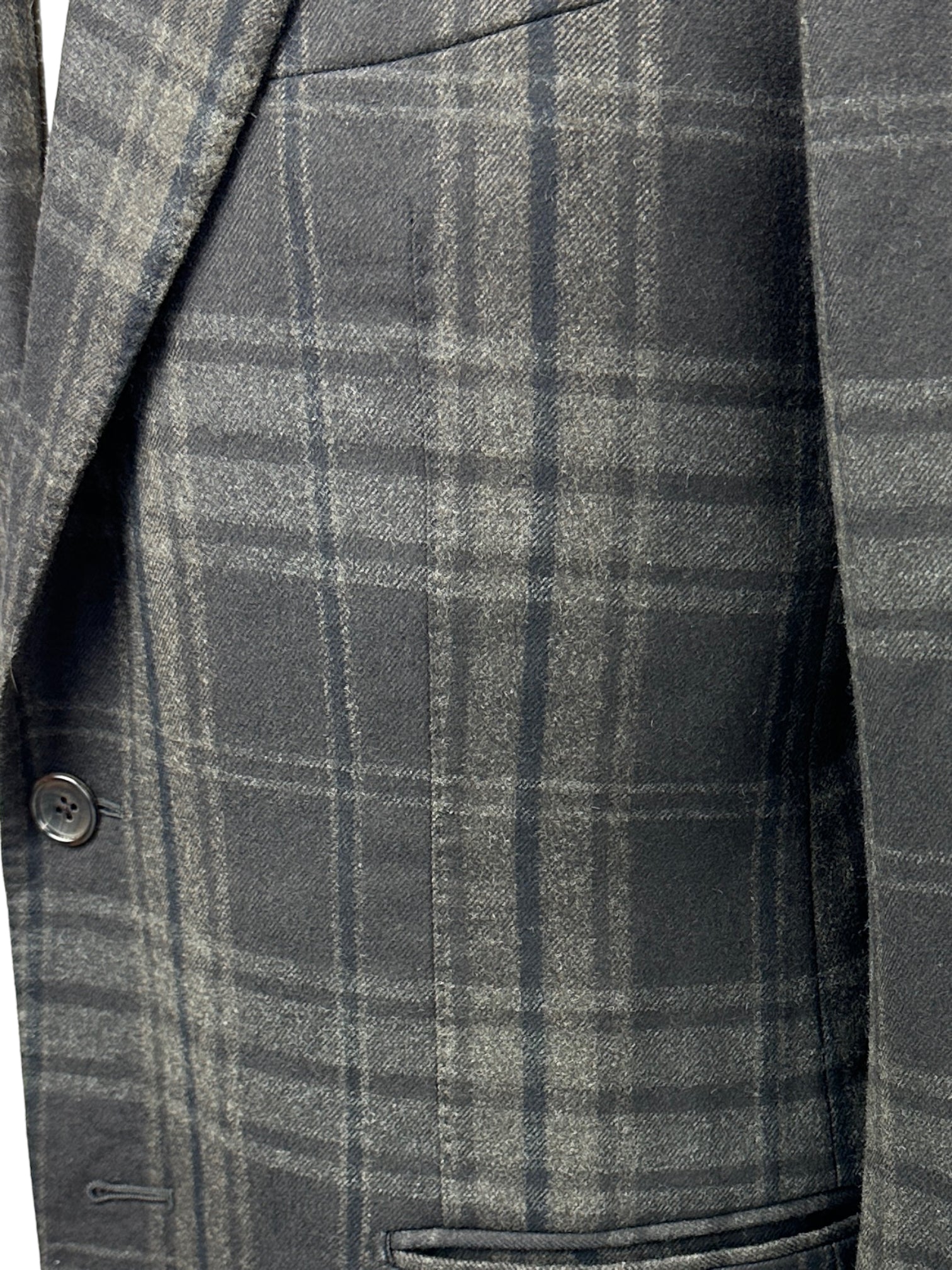
Darts
The tailors adds two darts - think of them as pinched seams - to ensure the jacket’s body achieves a slim silhouette. The process, called mezzo punto riprese, is done entirely by hand.
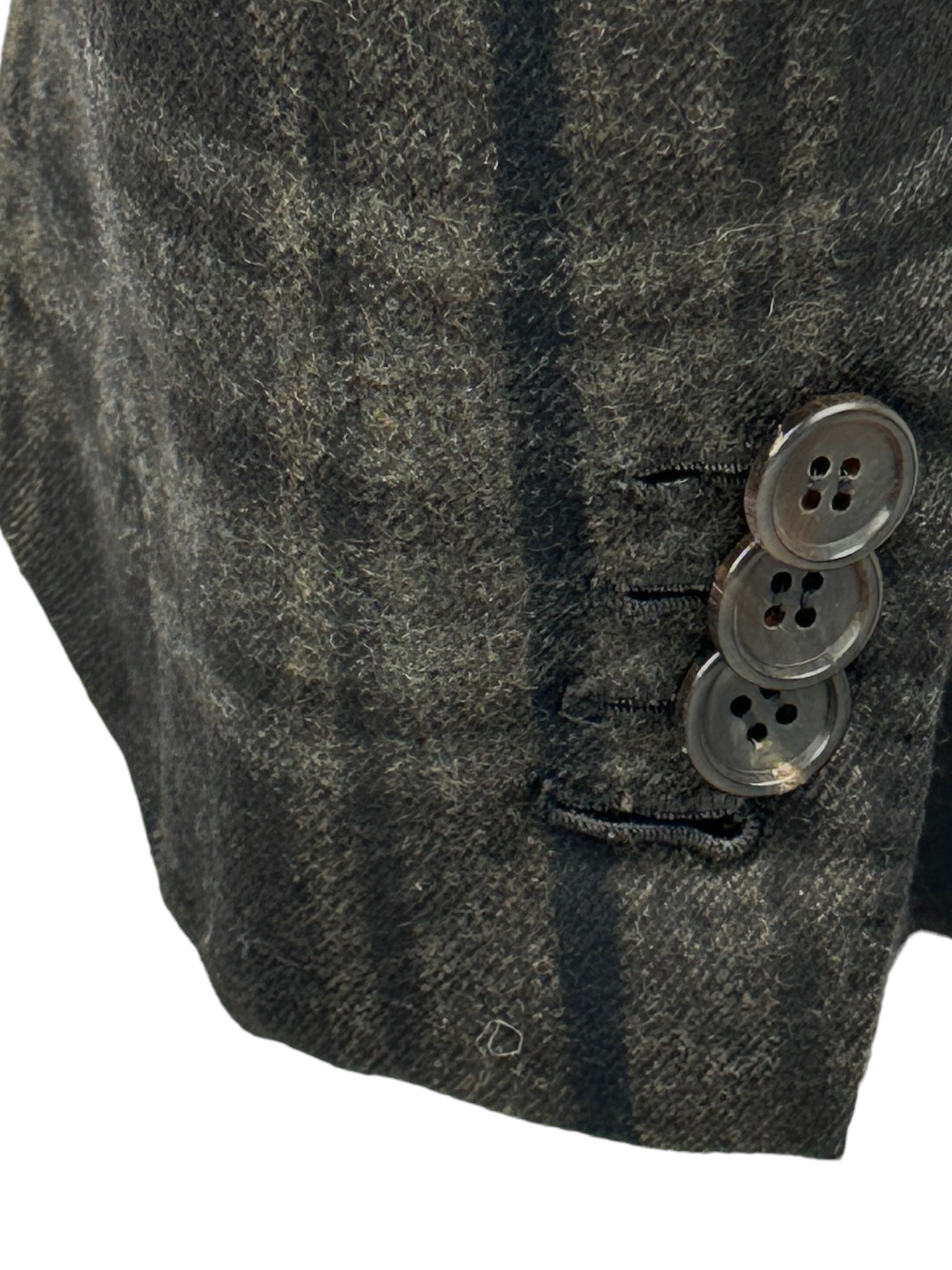
Buttons and Buttonholes
Also known as stacked buttons or waterfall buttons, kissing buttons are associated with Italian tailoring as Italian tailors make their jacket sleeve buttons in the kissing style. In this style, buttons touch each other and overlap one another. Handmade buttonholes; Even this step, apparently the simplest, is treated with an abundance of detail. Attaching the buttons is a job that requires patience and must be completed to perfection.
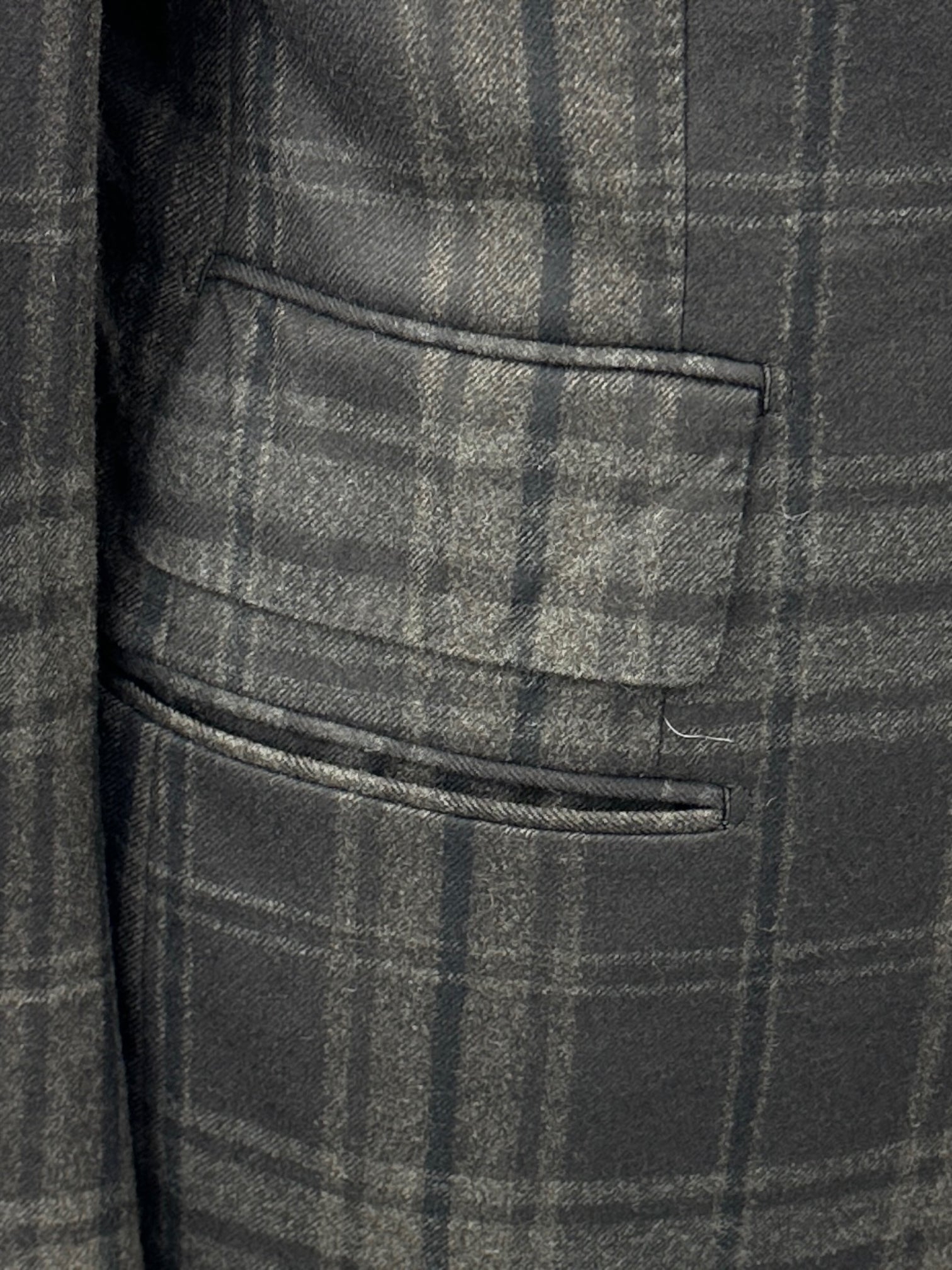
Ticket Pocket
The ticket pocket, also known as change pocket, has an old British history. At first it wasn’t even used to store a ticket, as the name indicates today. It became useful before the huge popularity of the railroad, as it was placed on the jackets of equestrians who needed quick access to coins at toll points. Allowing gentlemen to keep their jackets buttoned, this exterior pocket held cash in an extremely convenient way. Ticket pockets were a staple on men’s sturdy country suits before they adapted into the urban suits men wore to commute on a daily basis.

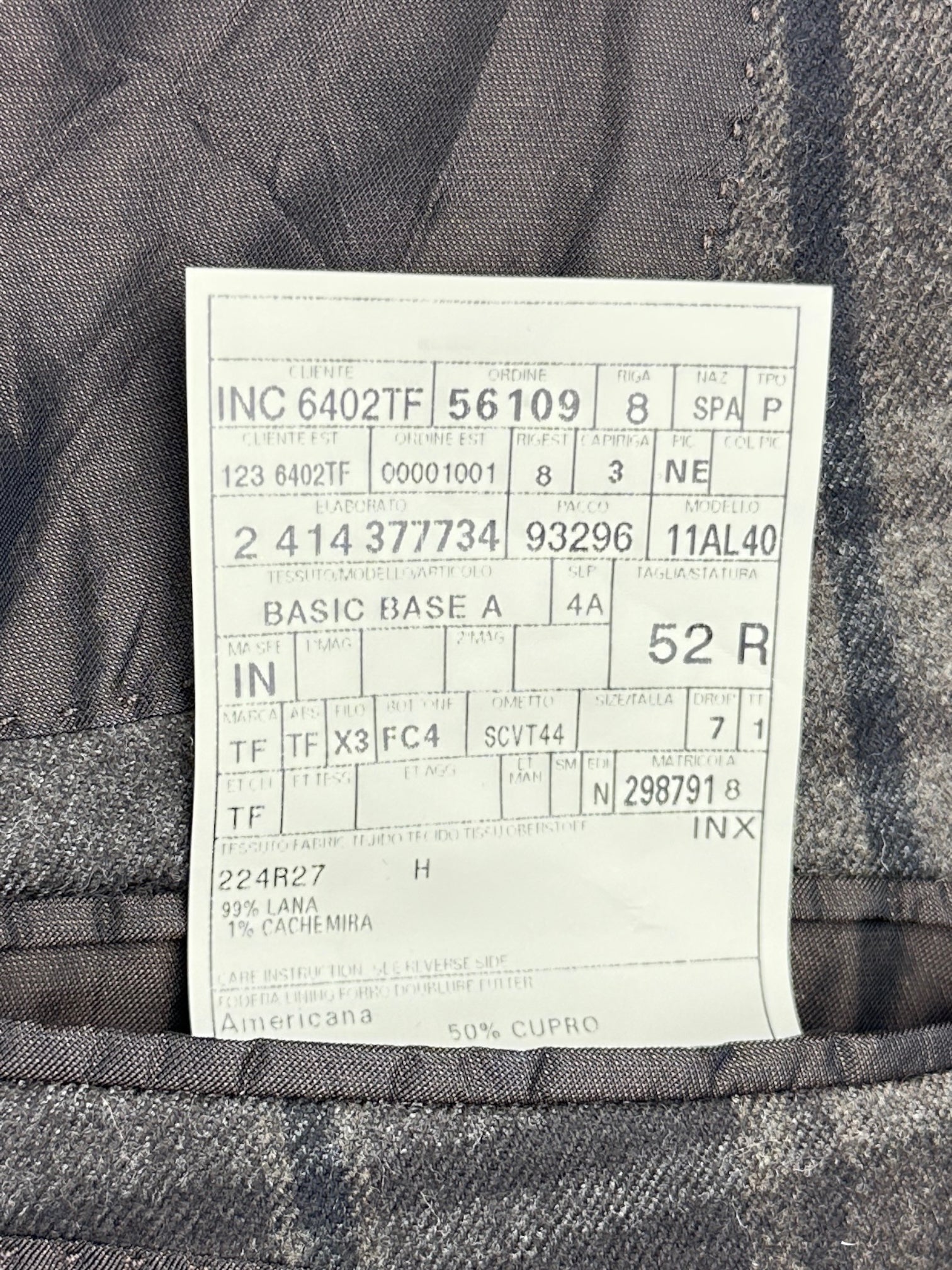
size
52 IT / 42 US / Large


 Curator's Description
Curator's Description Materials
Materials